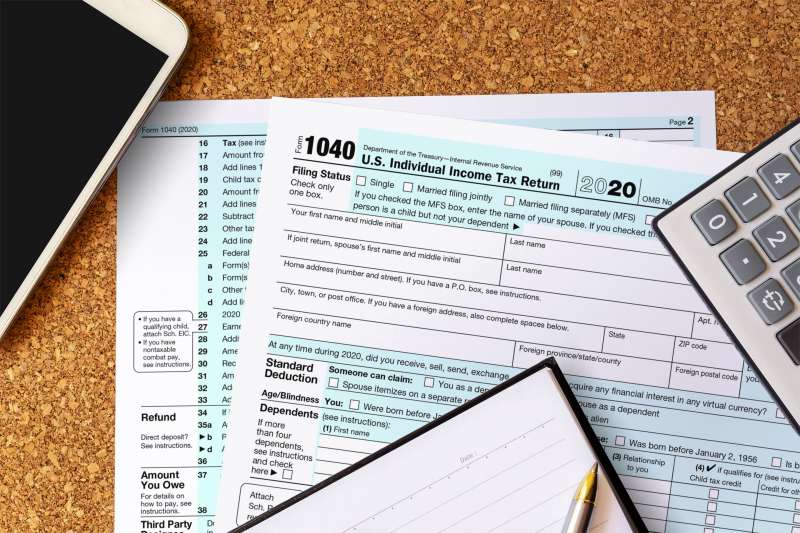Nora Carol Photography/Getty Images
2023 Tax Filing Season Has Begun.
Here Are the Deadlines You Need to Know:
The IRS expects to receive more than 168 million individual tax returns this filing season.
Dan Avery, Jan. 24, 2023 10:00 a.m. PT
The IRS began accepting tax returns on Monday, so it’s time to start getting your paperwork together to file your 2022 taxes.
The IRS says it expects to receive more than 168 million individual tax returns this filing season, the first to benefit from the Inflation Reduction Act, a measure passed in August that provides the IRS with additional staffing and resource.
“We’ve trained thousands of new employees to answer phones and help people,” Acting IRS Commissioner Doug O’Donnell said in a statement. “While much work remains after several difficult years, we expect people to experience improvements this tax season.”
We’ve gathered all the important dates for the 2022 tax season, including when federal and state taxes are due and when you can expect a refund.
What’s the deadline for filing taxes?
The deadline to file for most Americans is Tuesday, April 18, 2023. That’s because April 15 is a Saturday and the next weekday, April 17, is recognized as a holiday, Emancipation Day, in Washington, DC.
According to the IRS, “by law, Washington, D.C., holidays impact tax deadlines for everyone in the same way federal holidays do.”
Residents of Alabama, California and Georgia who have been impacted by severe storms have until May 15 to file their taxes.
If you’re serving in the military abroad, including in a combat zone or as part of a contingency operation in support of the US Armed Forces, you may be granted additional time to file your return.
When are state taxes due?
Of the 41 states that levy income tax, most are adhering to the April 18 deadline. There are some exceptions.
State Deadline
Iowa May 1
Virginia May 1
Delaware May 2
Louisiana May 15
Nine states — Alaska, Florida, Nevada, New Hampshire, South Dakota, Tennessee, Texas, Washington and Wyoming — have no state income taxes.
Check with your state department of revenue for the most current information and deadlines.
What’s the deadline if I file for an extension?
Taxpayers requesting an extension will have until Oct. 16, 2023, to file their 2022 tax return.
Fiiling an extension doesn’t push back your payment deadline, though. You still need to submit anything you owe on time to avoid late penalties. An extension just gives you more time to complete your return.
When can I file my 2022 taxes?
The IRS typically begins accepting and processing returns in late January. This year’s start date for individual tax return filers was Jan 23.
Employers are required to provide workers with W-2 and 1099 income tax forms by Jan. 31.
Should I file my taxes early?
If you have all your paperwork in order and you’re getting a refund, then it makes sense to file as soon as possible, said Joe Buhrmann, senior financial planning consultant at eMoney Advisor. “From a planning perspective, the IRS likes that.”
If you owe money, though, you might want to wait a bit.
“It gives you a bit more time to hold onto your money,” Buhrmann said. “And it gives you time to figure out how to pay – whether that means getting a loan, putting it on credit cards or something else.”
Even if you’re not filing immediately, you should prepare your taxes as soon as possible.
“Knowledge is always a good thing to have,” Buhrmann said. “Make sure you’ve gotten your 1099 and know what you’re going to be dealing with.”
When can I expect my refund?
Once the IRS begins accepting returns, the agency says, taxpayers who file electronically and are due a refund can expect it within 21 days — if they choose direct deposit and there are no issues with their return.
By law, the agency cannot issue refunds involving the Earned Income Tax Credit or Additional Child Tax Credit before mid-February, in order to help prevent fraudulent refunds from being issued.
When is IRS Free File available?
IRS Free File, a partnership between the IRS and leading tax-software companies, traditionally becomes available in January. The program allows taxpayers under a certain income threshold to file electronically for free, using software provided by participating providers. (Last year, the salary cap was $72,000.)
Free File typically begins before tax season officially starts, so the partner companies hold the completed returns until they can be filed electronically with the IRS.
© 2023 CNET, a Red Ventures company. All rights reserved.
© Axial Financial Group. All Rights reserved. 5 Burlington Woods, Suite 102 Burlington, Massachusetts
The accompanying pages have been developed by an independent third party. Commonwealth Financial Network is not responsible for their content and does not guarantee their accuracy or completeness, and they should not be relied upon as such. These materials are general in nature and do not address your specific situation. For your specific investment needs, please discuss your individual circumstances with your representative. Commonwealth does not provide tax or legal advice, and nothing in the accompanying pages should be construed as specific tax or legal advice. Securities and advisory services offered through Commonwealth Financial Network, Member FINRA/SIPC, a Registered Investment Adviser. Fixed insurance products and services offered through Axial Financial Group are separate and unrelated to Commonwealth.




